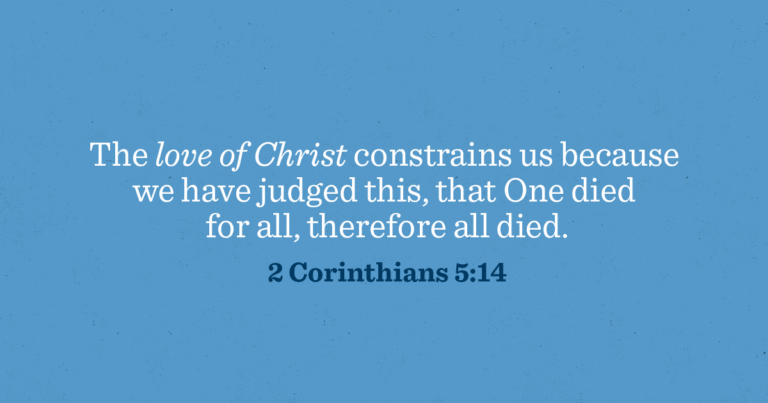A Story of Consecration: Loving Jesus with Our Best

Originally posted on the Bibles for America Blog.
In previous posts, we discussed the meaning of consecration, the basis and motivation for consecrating ourselves to God, and how to consecrate ourselves to the Lord.
In this post, we’ll take a look at a moving story of consecration recorded in the Bible about someone who loved the Lord Jesus and gave her all to Him. We’ll also read some notes in the New Testament Recovery Version to help us see how this story relates to us today.
Ointment of great value was poured out on the Lord
Let’s read the beginning of this story in Matthew 26:6-7:
“Now when Jesus was in Bethany, in the house of Simon the leper, a woman came to Him, having an alabaster flask of ointment of great value, and she poured it on His head as He reclined at table.”
The ointment the woman poured on the Lord’s head was something precious and costly. Made by compounding oil with aromatic resins and spices, such ointments were used in cosmetics, as medicine, and to anoint the body of a deceased person for burial. Because ointment was so costly, it was stored very carefully in a special flask made of alabaster.
That ointment must have been the most valuable thing the woman owned, and she had been keeping it in reserve. Yet she came and poured her treasured possession on the Lord’s head lavishly, freely, and unreservedly.
The Lord hadn’t asked the woman to pour out the ointment on Him. So why did she do it?
She received a revelation
Prior to this, the Lord Jesus had spoken of His imminent death and resurrection on four different occasions in the book of Matthew. He told those who were with Him that He would suffer many things from the chief priests, elders, and scribes; be condemned to death by them; and be delivered to the Gentiles. He said that the Gentiles would mock Him, scourge Him, and ultimately crucify Him. And He also told them that after these things, He would be raised on the third day.
After hearing the Lord speak these things, the woman came and anointed Jesus. Note 1 in the New Testament Recovery Version on Matthew 26:12 explains what prompted the woman (identified as Mary in John 12) to pour her ointment on the Lord:
“Mary received the revelation of the Lord’s death by the Lord’s words in [Matthew] 16:21; 17:22-23; 20:18-19; and v. 2 of this chapter. Hence, she grasped the opportunity to pour upon the Lord the best that she had. To love the Lord with our best requires a revelation concerning Him.”
From His speaking, Mary realized that the Lord Jesus, the One who loved sinners, was going to die for them. Not only that, His death would be through the unspeakable suffering of crucifixion. In response, she loved Him and expressed her love with her best.
To her, nothing was more precious than the Lord Himself, so she poured out her most prized possession on Him. By doing so, she testified that Jesus was worthy of her love and all she had.
She expressed her love in a timely way
The fourth and final time Jesus spoke of His death to His disciples was right before Mary anointed Him. In Matthew 26:2, He told His followers exactly when His crucifixion would take place:
“You know that after two days the Passover takes place, and the Son of Man is being delivered up to be crucified.”
Mary understood from these words that the Lord’s death was soon, just days away.
But since ointment was customarily used to anoint the dead for burial, why didn’t she save her ointment for after He died? Why did she anoint the Lord before He died? She chose to anoint the Lord Jesus before He was taken away and crucified to show her love for Him, while there was still time.
By contrast, Mark 16 tells us that after Jesus was crucified, some women came to His tomb to anoint His body. But they were too late; Jesus had already resurrected.
So Mary not only loved the Lord with the best that she had, but she also showed her love in a timely way. She gave her best to anoint the Lord in love when she had the chance.
The disciples’ reaction
Matthew 26:8 and 9 tell us how the disciples reacted to what Mary did:
“But when the disciples saw it, they were indignant, saying, Why this waste? For this could have been sold for much and given to the poor.”
The disciples thought Mary’s pouring out of the ointment was an extravagant waste. They had been with the Lord, and they also had heard Him speak of His approaching arrest, suffering, crucifixion, and resurrection. But they hadn’t yet seen the preciousness of the Lord and His death like Mary had.
A wonderful note on the word waste in verse 8 in the Recovery Version says:
“The disciples considered Mary’s love offering to the Lord a waste. Throughout the past twenty centuries thousands of precious lives, heart treasures, high positions, and golden futures have been ‘wasted’ upon the Lord Jesus. To those who love Him in such a way He is altogether lovely and worthy of their offering. What they have poured upon Him is not a waste but a fragrant testimony of His sweetness.”
Mary’s act of pouring out her precious ointment on the Lord wasn’t a waste. It was a fragrant testimony of the Lord’s sweetness.
Over the past centuries, countless believers in Jesus have given up their lives as martyrs. Others have left their homes and everything they knew, traveling to foreign countries to tell people about Jesus and His salvation. Why? What made them do it? They were motivated by the Lord’s immense love shown in His dying on the cross for them, and they loved Him in return with their all.
Today, our family members, friends, work colleagues, and schoolmates who aren’t saved yet may think that loving Jesus with all we have is a waste of our time, talents, and energy.
But we can only respond by saying that the Lord Jesus, the most lovely and loving One in the universe, gave His life on the cross for us. What love He showed us! Only Jesus is worthy of all our love, all we have, and all we are. And now is the best time for us to unreservedly pour out in consecration our hearts, our lives, our futures—our all—on Him.
The Lord’s appraisal of what she did
We’ve seen the disciples’ reaction to what the woman did. But did the Lord also think it was a waste? In the last part of the story, Matthew 26:10-13 tells us how the Lord appraised what she did:
“But Jesus, knowing it, said to them, Why do you trouble the woman? She has done a noble deed to Me. For the poor you have with you always, but you do not always have Me. For in pouring out this ointment on My body, she has done it for My burial. Truly I say to you, Wherever this gospel is proclaimed in the whole world, what this woman has done shall also be told as a memorial of her.”
The Lord Jesus didn’t commend the disciples for suggesting that the ointment could have been sold to give to the poor. Instead, He appraised the woman’s act of pouring out her precious ointment on Him as a noble deed. And He recognized that she did this ahead of time for His burial.
Even more, the Lord said that wherever the gospel is preached, what this woman did would be told as a memorial to her. Note 2 on verse 13 explains what that means:
“The story of the gospel is that the Lord loved us, and the story of Mary is that she loved the Lord. We must preach both—the Lord’s loving us and our loving the Lord. One is for our salvation, and the other is for our consecration.”
When we see the Lord’s great love manifested on the cross, how can we help but love Him utterly and give our best to Him? And the more we see Him, the more we love Him and want to yield ourselves to Him in consecration.
May we all testify of the sweetness and preciousness of the Lord by consecrating ourselves to Him in love while we still have time.
If you live in Australia, we encourage you to order a free copy of the New Testament Recovery Version and spend some time reading this story in Matthew 26 with all the commentary.
We also recommend this hymn on consecration; you can read the lyrics and hear the tune here.
Subscribe to receive the latest posts






